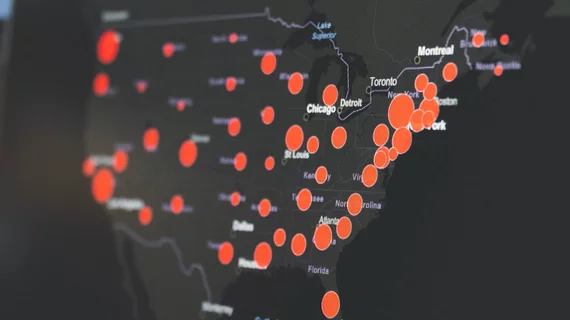Nearly 95% of around 500 healthcare executives working for provider organizations believe concentrating on population health is key to ensuring long-term success.
Yet the median percentage of revenue in payment models based on either upside gain or downside risk across these organizations is just 10%—a third of what the leaders projected two years ago.
What’s been keeping the execs from putting their risk- or value-based contracting where their pop-health aims are? Apprehensiveness over possible payment penalties due to subpar performance on quality, for one thing.
That’s according to the consultancy behind the survey that produced the findings, St. Louis-based Numerof & Associates. The company released its results and commentary thereon in a free report posted Aug. 18 (registration required).
Notably, the survey was taken last summer, well before the COVID-19 crisis arrived.
In a news release, the firm’s president, Rita Numerof, PhD, suggests the pandemic has only turned up the heat on providers who’ve been paying mere lip service to population health.
“One of the greatest ironies in all this is that because of Covid-19, people are realizing that there’s just as much—if not more—risk in staying in an antiquated, fee-for-service model than there is in embracing an alternative,” Numerof says. “We expect to see the sentiments surrounding risk shift significantly next year, especially as awareness of providers’ success with capitated payments during the pandemic becomes even more mainstream.”
Another striking finding in this year’s survey, the fifth annual “State of Population Health” project by Numerof & Associates:
Two-thirds of respondents, 66%, say they’re moderately or completely prepared to meet qualifying metrics on cost and quality—but only 35% believe their organization is better than average at managing cost at the individual physician level.
A Numerof & Associates managing partner, Michael Abrams, calls this disconnect “quite shocking.”
“There’s been very little movement on creating care paths, flagging variation using order entry systems, equipping physicians with data and tying physician payment to outcomes since our first survey in 2015,” Abrams says. “[This] points to a hugely overlooked opportunity to add value.”
Also quoted in the news release is David Nash, MD, MBA, founding dean emeritus of the Jefferson College of Population Health in Philadelphia, who worked with Numerof & Associates on the present survey.
“The healthcare system that brought us to the edge of the abyss cannot be the system that propels us to the future. We have to transform the system,” Nash says. Doing so “will require new leadership structures, and because of the pandemic’s increased attention on social determinants of health, we anticipate the role of the Chief Population Health Officer to evolve to the Chief Health Officer.”
The full survey report is 35 pages long and available in full for free with registration.

